The current response to the coronavirus is like an exploding whale. I’ll bet you weren’t expecting that comparison! The person managing the Doncaster Council Twitter account posted a history lesson about the time that US officials blew up a decaying 7.3k kilogram (16.1k pound) sperm whale in Portland, Oregon, in 1970. With dynamite.
That solution wasn’t the brightest idea because it rained chunks of whale meat on everyone, smashed a car, and didn’t get rid of the main problem. But do you know what was a success? The Doncaster Council’s Twitter thread which got more than 63k likes and over 35k retweets.
People were so wowed by the story that some of them even suggested giving the Twitter account’s manager a raise. Scroll down to read the full story and the lessons we’re supposed to learn about the coronavirus from this disastrous historical “solution.”
More info: Doncaster.gov.uk | Twitter | Facebook
The Doncaster Council Twitter account manager posted a historical analogy about how the 1970 Oregon exploding whale can teach us 3 lessons about the coronavirus
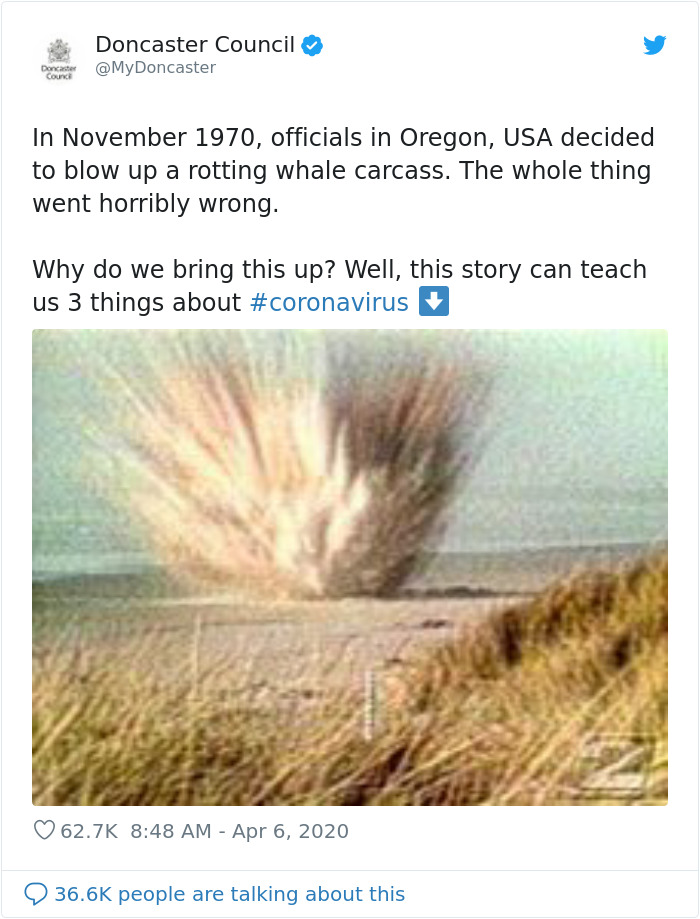
Image credits: MyDoncaster
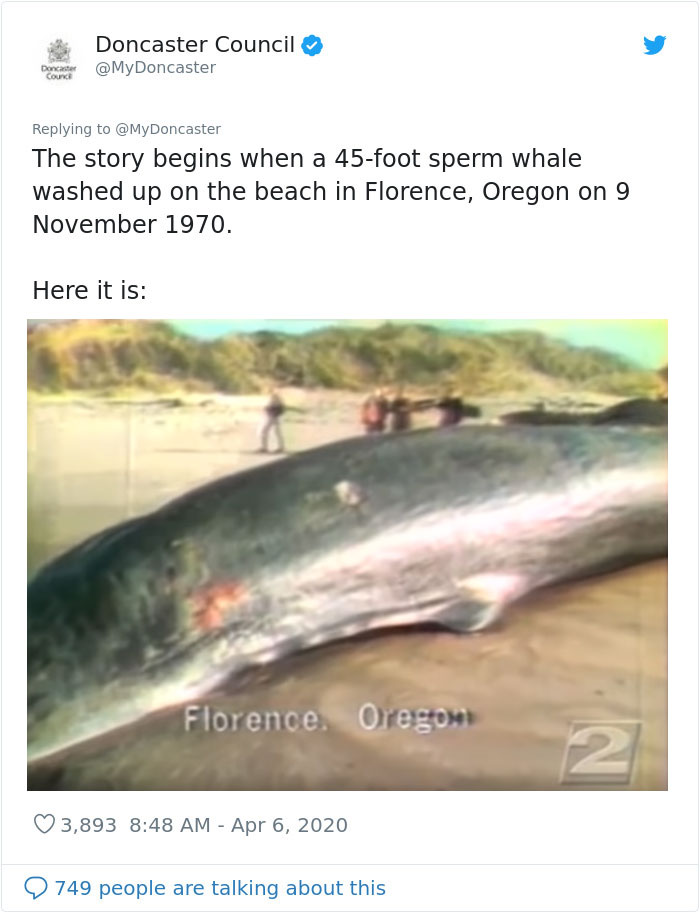
Image credits: MyDoncaster
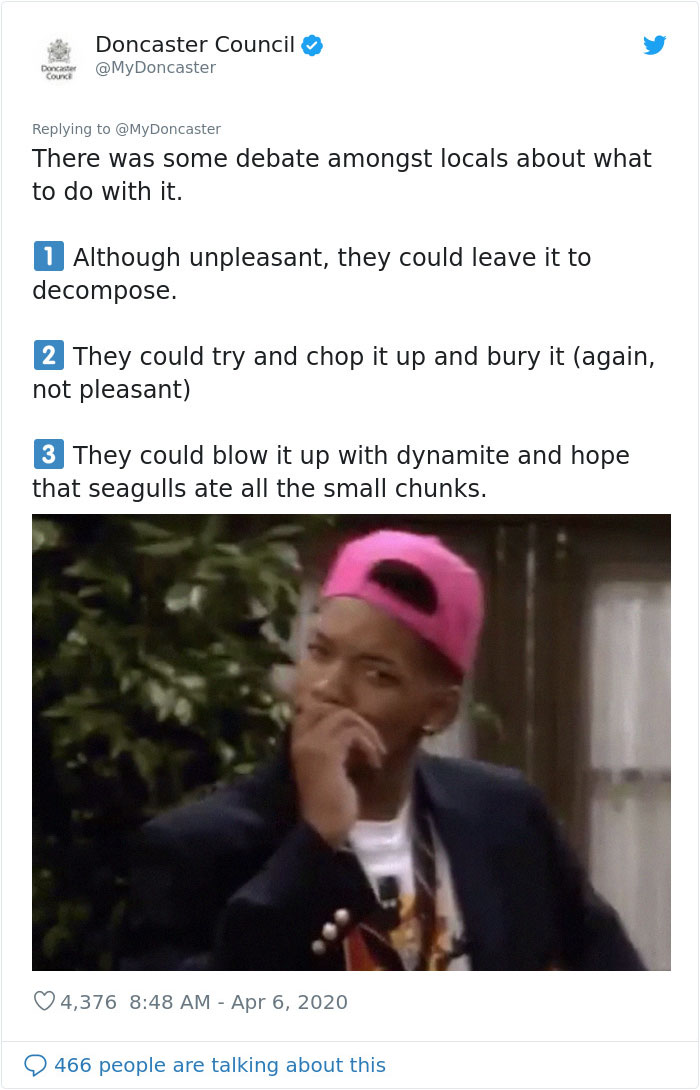
Image credits: MyDoncaster
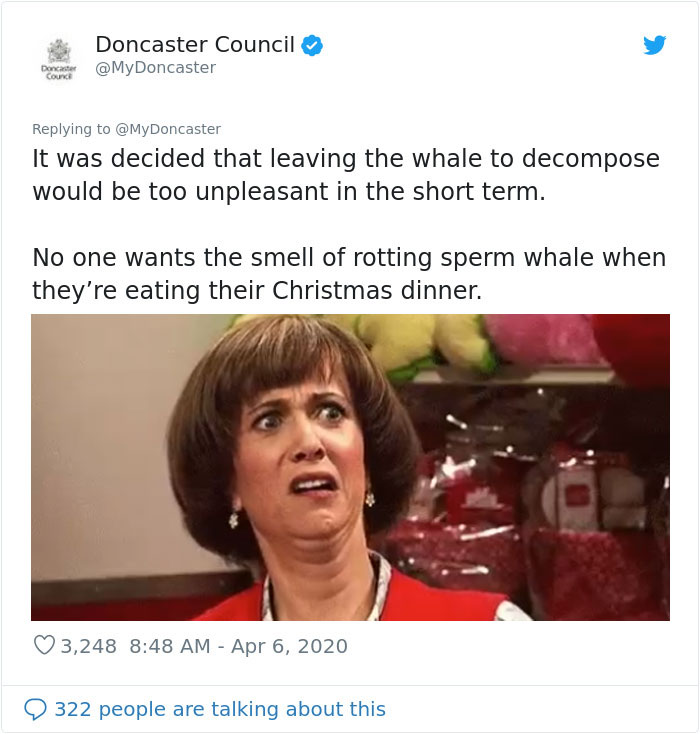
Image credits: MyDoncaster
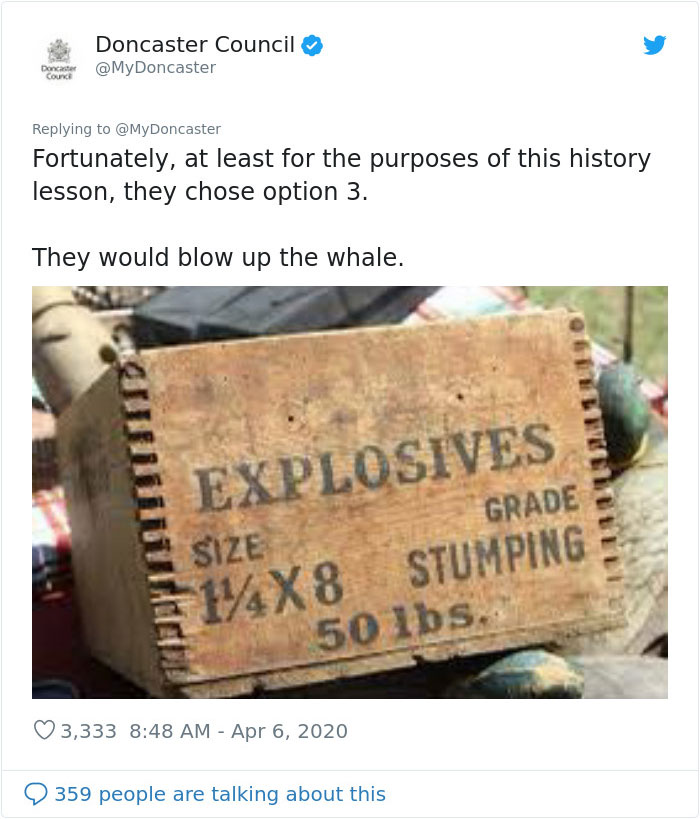
Image credits: MyDoncaster
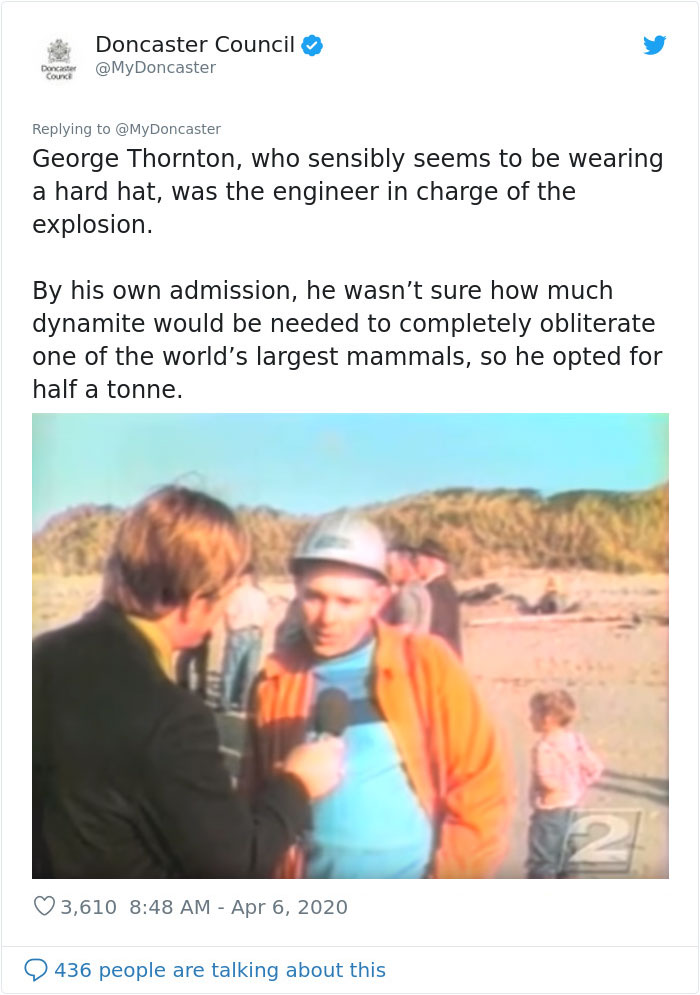
Image credits: MyDoncaster

Image credits: MyDoncaster
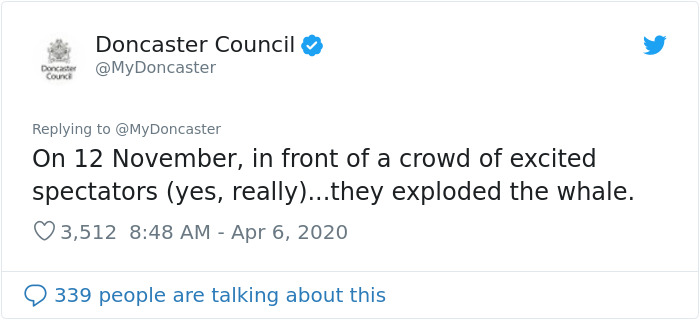
Image credits: MyDoncaster

Image credits: MyDoncaster
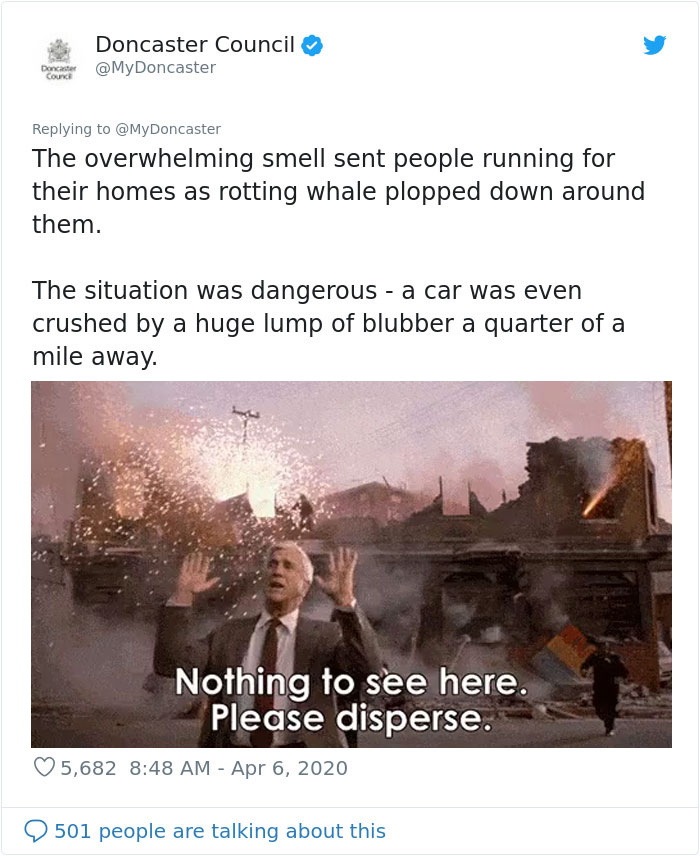
Image credits: MyDoncaster
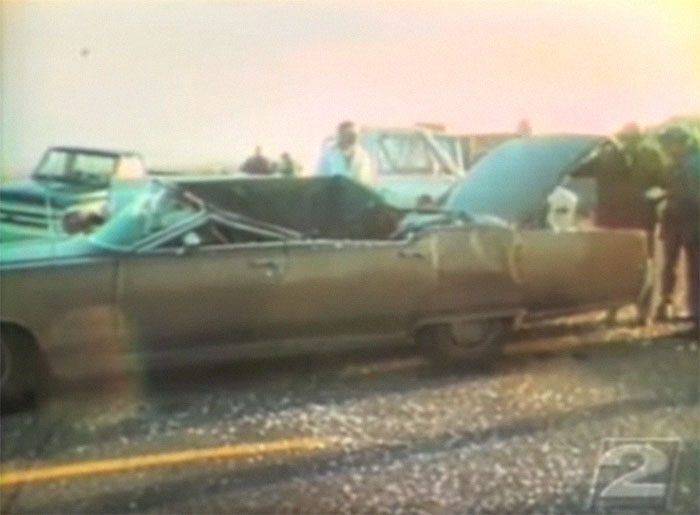
Image credits: TheExplodingWhale.com
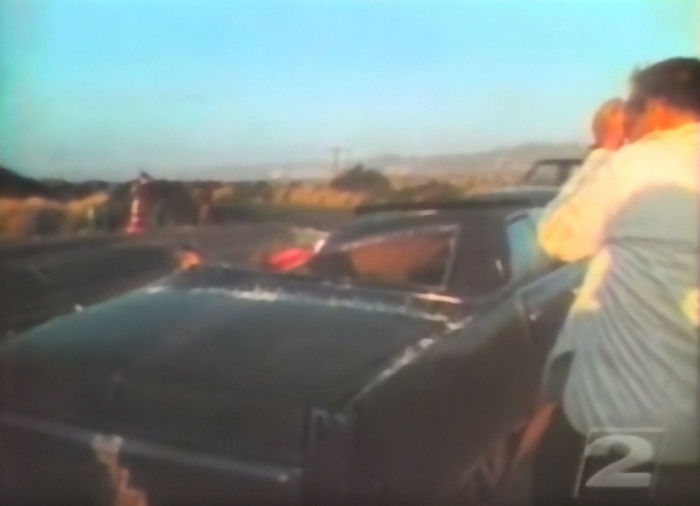
Image credits: TheExplodingWhale.com
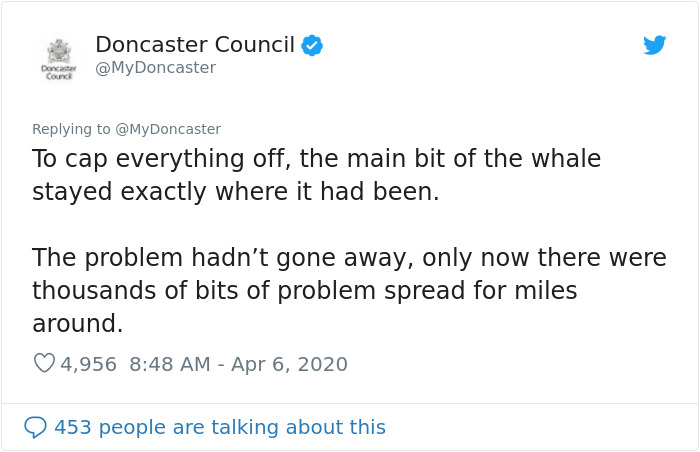
Image credits: MyDoncaster
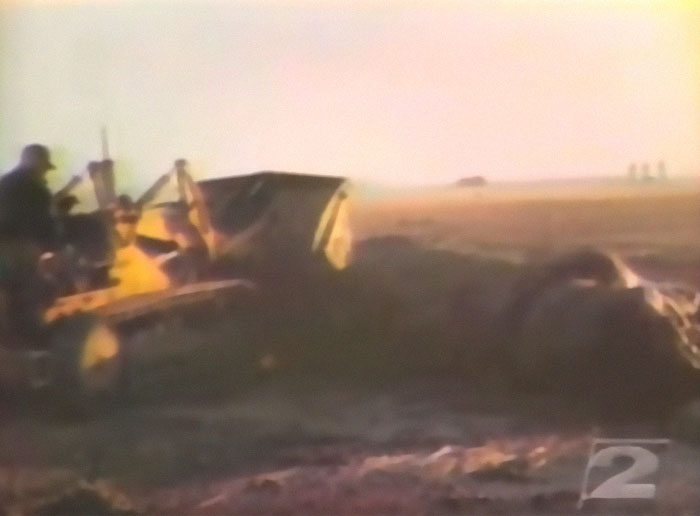
Image credits: TheExplodingWhale.com

Image credits: MyDoncaster
Here are the 3 lessons we can learn from this event

Image credits: MyDoncaster

Image credits: MyDoncaster
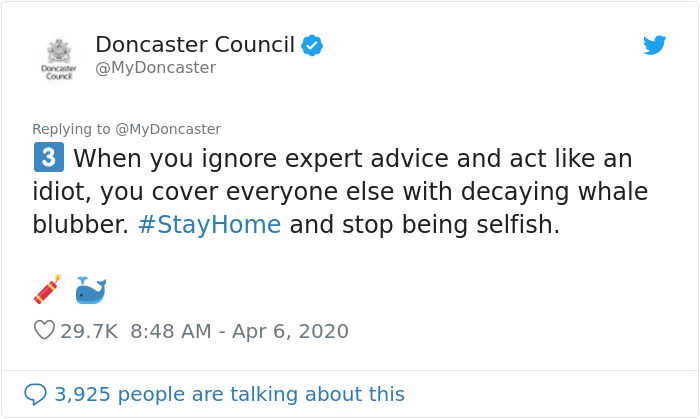
Image credits: MyDoncaster
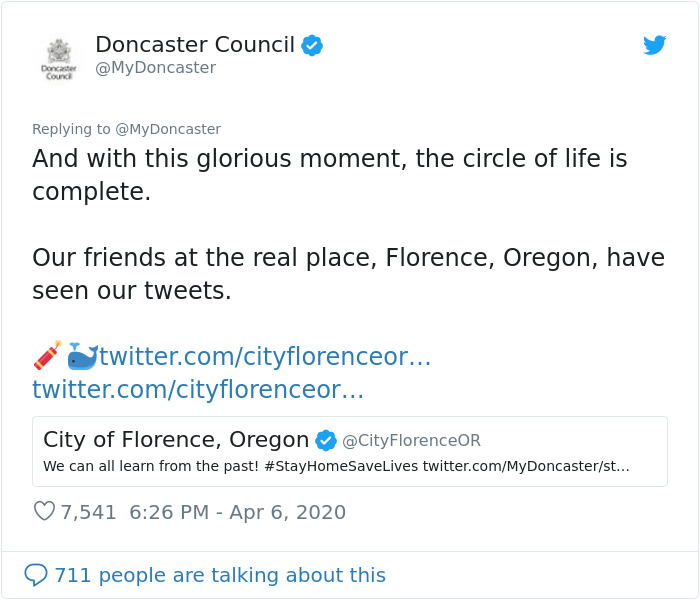
Image credits: MyDoncaster
Back in 1970, news reporter Paul Linnman who covered the story stated that “ the blast blasted blubber beyond all believable bounds.” Not only was part of the whale still intact, but the explosion also scared away the birds that officials had hoped would eat the chunkified remains.
“It might be concluded that, should a whale ever be washed ashore in Lane County again, those in charge will not only remember what to do, they’ll certainly remember what not to do,” Linnman said. In fact, US officials learned from their mistakes. So when 41 sperm whales beached nearby in 1979, they were burned and buried. No more messing with explosions.
Here’s the full news report from 1970
Years later, in the mid-1990s, Linnman contacted George Thornton, the engineer in charge of the operation, once again. Thornton thought that the operation had been a success and blamed the media for turning what happened into a PR disaster.
As things currently stand, the policy of the Oregon State Parks Department is to bury whales when they wash ashore. And, if the sand’s not deep enough, the carcasses are transported to another beach. Lesson learned? Lesson learned. Now, it’s time to learn the lessons that the Doncaster Council’s trying to teach us about the coronavirus.
People loved the analogy and some even suggested giving the Twitter account manager a raise

Image credits: Liesbethflowers

Image credits: Vintage_Maggie
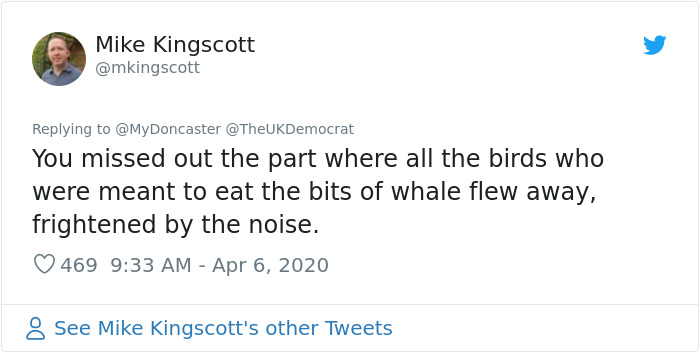
Image credits: mkingscott

Image credits: Overthehillprop
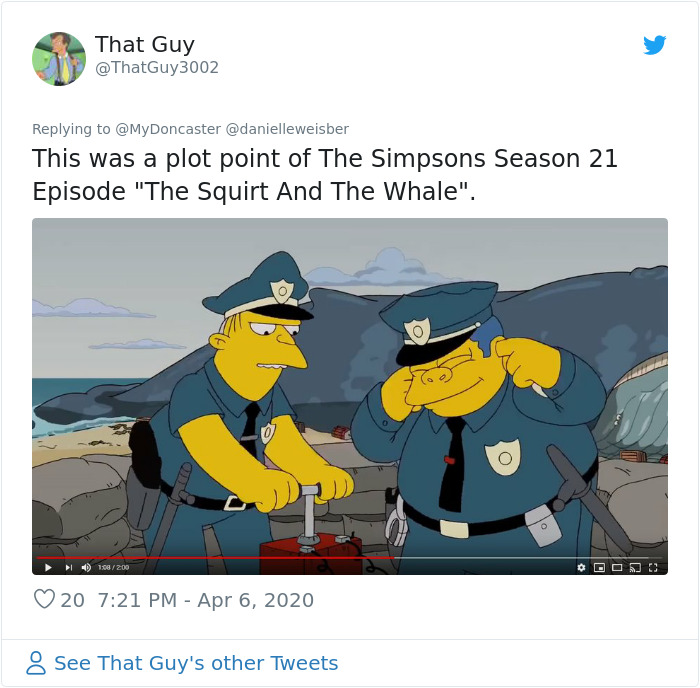
Image credits: ThatGuy3002

Image credits: SocialBeastie
from Bored Panda https://ift.tt/3aOlSru

